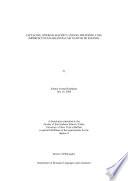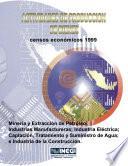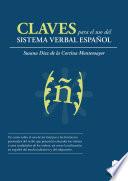Captacion, Internalizacion Y Uso Del Preterito Y Del Imperfecto En Hablantes Casi Nativos De Espanol
Autores del Libro:
Resumen del Libro:

This study deals with the preterite/imperfect distinction in Spanish from a less commonly analyzed perspective: reception, building of mental representations, and usage of the preterite and the imperfect by near-native speakers of Spanish whose native language is English. Experimental evidence from one main task and two auxiliary tasks involving translation and spontaneous oral expressions suggests that there are many similarities among the performances of near-native speakers (the experimental group), although this performance is not always similar to that of native speakers (the control group). It is hypothesized that the usage of knowledge (performance) and the knowledge itself (competence) are strongly associated in the preterite/imperfect complex semantic contrast and that in the minds/brains of near-native speakers there are two different sources for obtaining and developing this linguistic knowledge: one implicit, spontaneous, and unconscious (acquisition) and the other explicit, conscious, and formal-teaching-focused (learning). Therefore, we conclude that near-native speakers of Spanish do build a group of consistent and unconscious mental representations similar to those of native speakers of Spanish and, when they do so, they then have access to some modules of the Universal Grammar (UG) that allow them to develop a sense of grammaticality which, in many cases, is similar to the native one. All this is achieved despite misleading, inadequate, and incomplete textbook explanations, deficient and partial oral expressions and the lack of the imperfective/perfective distinction (grammatical aspect) in English as native language.
Formatos Disponibles: PDF / EPUB
Opciones de descarga:
Si deseas obtener una copia del libro puedes usar alguna de las siguientes opciones de descarga:



